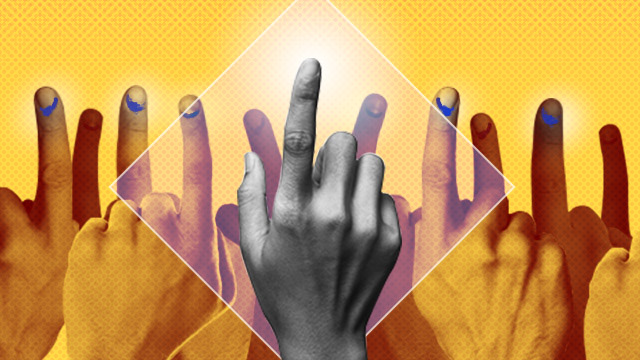
You could say I was a different person 3 years ago. I’d been working in a newsroom for years by then, and despite (or maybe because of?) this, I was a classic cynic, the ideals of our democratic process ricocheting off my hardened heart.
My distrust was at least grounded on experience. When I was in high school, my family and I trooped to Edsa the night of January 16, 2001, and as I railed with the throng against Erap and the knights of the brown envelope, I felt a very important kind of hope for the first time – only to feel gypped once Gloria Macapagal Arroyo’s true nature became more and more apparent.
Then in 2004, right when I was 18 years old, I voted for the first – and to this day, only – time. My president was Raul Roco, the gumamela-loving champion of education, whose “honorary woman” title and penchant for balagtasan were major selling points for little liberal me. Alas, Gloria won, Roco died, Garci leaked, and my confidence in the electoral system took a big blow.
By the next presidential elections in 2010, when the whole Yellow Ribbon Movement was weaving itself into the narrative, I was just out of college, hopping from job to job, deep in the self-indulgent turmoil of an early 20-something. Off the bat, I was skeptical of the Aquino hype machine. I could recognize the honest-to-goodness hope in it, but also had a niggling feeling that Noynoy Aquino was more mascot than messiah. I felt that Filipinos, yet again, were hingeing too much on the mere promise of something different, of some sort of change coming around the corner—and not much else. We were this way both in Edsa 2 and 2004. What would make 2010 any different? So I didn’t vote, and I didn’t feel bad about it.
By 2016, my personal life had become far more stable. I was 3 years into my job as a Rappler social media producer, and I was convinced (and still am!) that this was the company for me. It was a place where I could channel my frustrations towards the government into something positive and productive, helping to inform the public on key issues without fear or favor. Moreover, working alongside women and men who chose this difficult, often thankless, job out of a sense of duty made me a more “benevolent” dissenter: less sneering, more doing.
But I was still stubborn about the elections. Some old habits die hard. Rodrigo Duterte’s severe and sweeping promises, and the naked fanaticism he embraced, just strengthened my distrust towards how we elected leaders in the first place. Another messiah, another mistake. And even if all my other workmates in the newsroom were voting, I felt no peer pressure. You couldn’t pressure someone who was sure her vote amounted to nothing. So again, I waived my right to vote, and I watched Duterte take the seat as I had half-heartedly thought he would.
The regret was instantaneous. It seems redundant at this point to even say why. The misogyny. The cronyism. The murders. The stolen wealth. The shaky economy. The kowtowing to the Chinese. And of course, on a very personal level, the attacks against Rappler and the free press, which threw our newsroom into the deluge of hate and disinformation that we’re still trying to swim against ’til today.
It was a tough and humbling lesson to learn. I realized that if skeptics like myself had just gotten off their butts and ticked a few boxes along with everyone else, there may have been a real chance, however small, that none of the horrors of the past 3 years would have happened. Suddenly, voting didn’t seem so futile; the mechanisms of the electoral process became clear as crystal, and whatever cynicism I had was overpowered by the stark truth that there really was strength in numbers, whether for bad or for good.
But our country’s collapse into fascism was not worth learning this lesson, and for that, I am compelled to make up as best as I can for my years of apathy – starting with the midterms this coming May.
Suffice it to say that when it was time to register, I went to my precinct as soon as I could, my younger brothers in tow. And in a few weeks, when it is finally time for me to face that ballot after so many years of avoiding it, I will be certain that my vote will amount to something, and that yours will too—regardless of what’s happened in our past, regardless of how many times the people who are supposed to protect us have disappointed us.
Democracy is not about getting it right the first time.
We made huge mistakes, but what elections actually do is keep us from letting these mistakes fester. They are the tool through which we get that second chance, and the way our country is headed, we need to take that chance and run with it.
We were different people then, and I've come to believe that we can be better people now. – Rappler.com